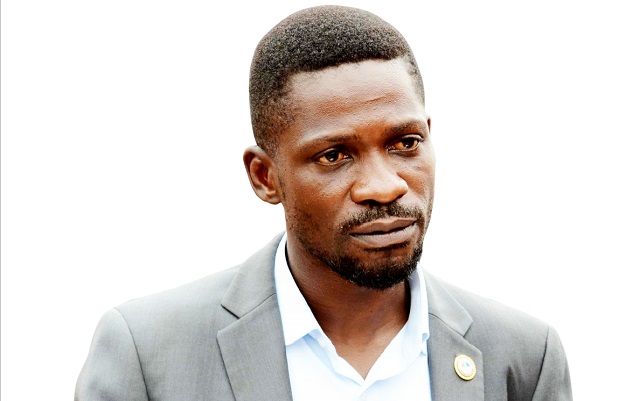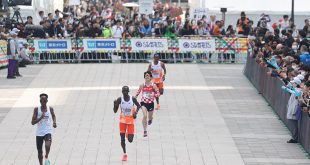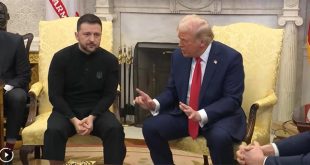
Withdrawal of presidential election petition leaves `cadre judges’ on the defensive
Kampala, Uganda | IAN KATUSIIME | On Feb. 22 former presidential candidate Robert Kyagulanyi in an unsurprising move announced his decision to withdraw his presidential election petition in the Supreme Court in Kampala challenging the declared victory of President Yoweri Museveni.
“We are going to the court of public opinion,” Kyagulanyi aka Bobi Wine declared to supporters.
“And yes we went to the Supreme Court to get two things: either to get justice or to get opportunity to expose the judiciary,” Kyagulanyi said after what was a frustrating encounter with the highest court in the land.
In his application to withdraw, Kyagulanyi cited abduction and torture of his witnesses by state agents, actions of Uganda Police and National Identification Registration Authority (NIRA) to spy and infringe on privacy of his witnesses and associates, and the rejection of his application by the Supreme Court to file additional affidavits.
Kyagulanyi also cited his placement under house arrest after the Jan. 14 elections which, he said, had a cascading effect on his inability to gather evidence and affidavits among other charges.
As the court readies itself for hearing the withdrawal matter, it is being cast under a cloud of bias of so-called ‘cadre judges’; in reference to judicial officials appointed after serving in President Yoweri Museveni’s government or the ruling party, the National Resistance Movement (NRM).
Male Mabirizi, a notoriously litigious lawyer, has filed an application in the same Supreme Court asking Chief Justice Owiny Dollo to recuse himself from hearing the petition filed by Kyagulanyi.
Mabirizi’s application formally captured Kyagulanyi’s cry out; that Owiny-Dollo had worked as a personal lawyer to President Museveni during the 2006 presidential election petition filed by Besigye and therefore could not be impartial while chairing a panel of judges hearing a petition challenging the president’s victory.
In the hearing of the application, Owiny Dollo argued the case for his impartiality. According to a transcript of the hearing by Daily Monitor, the chief justice said, “Doesn’t the Attorney General advise the President on a daily basis? When you went through that resume at the Judicial Service Commission, didn’t you also find information that the same person who in 2006, for example, represented the first respondent [Museveni] also represented a host of other people who were caught committing high level treason whom I saved from the gallows?” Owiny Dollo asked Mabirizi.
He added “You remember there was a rebellion in northern Uganda that was seeking to remove the same person you say I represented, so I also represented rebels.”
Kyagulanyi’s move to withdraw his petition has also divided opinion among the legal community and citizens on the street.
Some like Peter Walubiri, a renowned lawyer and judicial activist, say it is up to the Supreme Court to prove to its accusers that it is not biased.
“You only change your reputation and image by positive actions which demonstrate that the allegations against you are not right,” he told The Independent, “For example I want to see how they handle the application withdrawal.”
Walubiri said the court should not make it any harder for Kyagulanyi to withdraw. Allow the man to withdraw…with all the issue he has raised and how he was treated in his campaign.”
He also said the Supreme Court should not purport to allow a presidential candidate who said the election was free and fair to inherit the petition.
“If someone says they were arrested and beaten, and not allowed to consult, why would you take them in circles regarding withdrawal?” he asked.
Kyagulanyi’s supporters have seized on how his allegations have exposed details about some of the justices to demonstrate the alleged bias of the Supreme Court. Its head, Alphonse Owiny-Dollo; the chief justice, now in his sixth month in the position, has been on the defensive.
“Nobody should have the fear that we will favour any person in this petition, we took an oath to defend. We did not invite anyone to this court, if you have Plan B, go ahead with it but do not bring underserved chaos in court,” Owiny-Dollo said in response to Kyagulanyi’s allegations that he was too biased to hear the petition he had filed.
 The Independent Uganda: You get the Truth we Pay the Price
The Independent Uganda: You get the Truth we Pay the Price



This is utter rubbish. Courts of law are guided by law, and procedure, and not sentiments and feelings. Courts of law are not political institutions and judges aren’t politicians that act to please. They don’t base their decisions on public opinion, nor on lies and fake information. Walubiri is a very biased lawyer when he insinuates that its up to the Supreme Court to prove that it is not biased. It’s a known principal of law, and Walubiri should know better: IT IS TT THE ALLEGER TO PROVE. The burden of proof lies with those alleging. Walubiri, Kyagulanyi, and their likes must prove what they are alleging. Otherwise, defamation cases wouldn’t be on our law books. I thus find this story to have been written from an ignorant point of view, or the author is simply not rational.
There are a litany of categorical statements in your posts making worthless to even to attempt to rebut them. With deep respect, either you are incredibly naive or paid for this post.
True, Kyagulanyi went to Court to prove something, only to turn around, he has failed to prove anything hence the withdrawal!
We respect the judges
we only pray that it becomes easy to adjust to their opinion
To begin with how come one had a different opinion?
Then there is the preamble of the 1995 constitution, a litany of Uganda’s past
Finally summaries that contradict what we mere mortals observed
Forgive our ignorance, but these things have not only happened this year
it was quite confusing during the “togikwatako” deliberations
ah we hope to start understanding these things better [before the dementia phase], having witnessed all the happenings since 1966